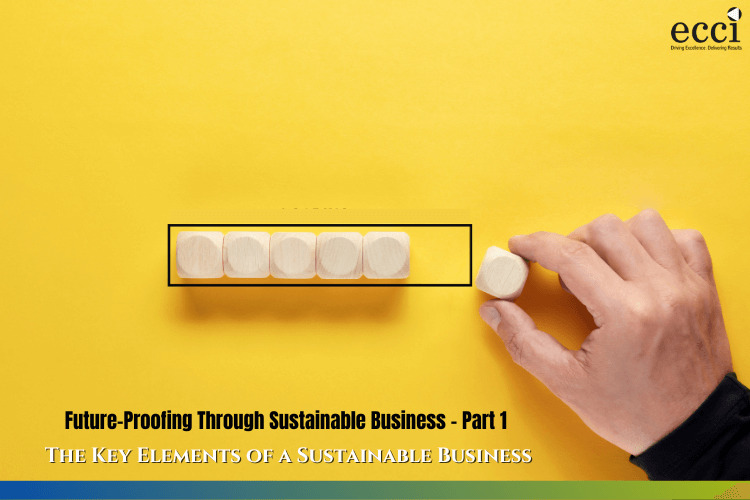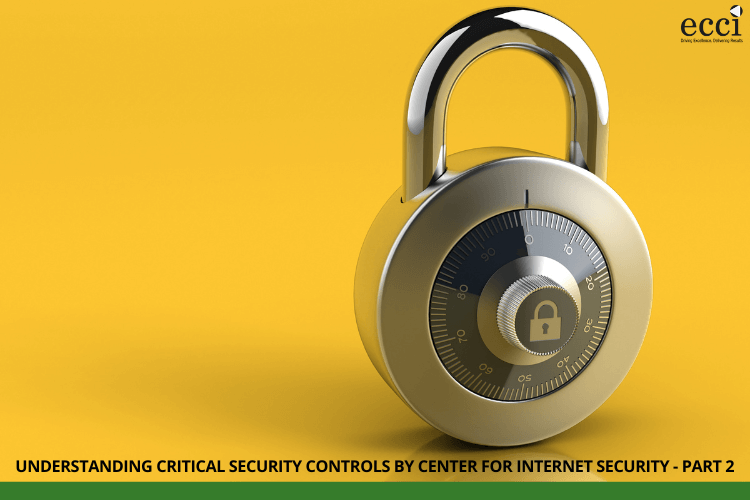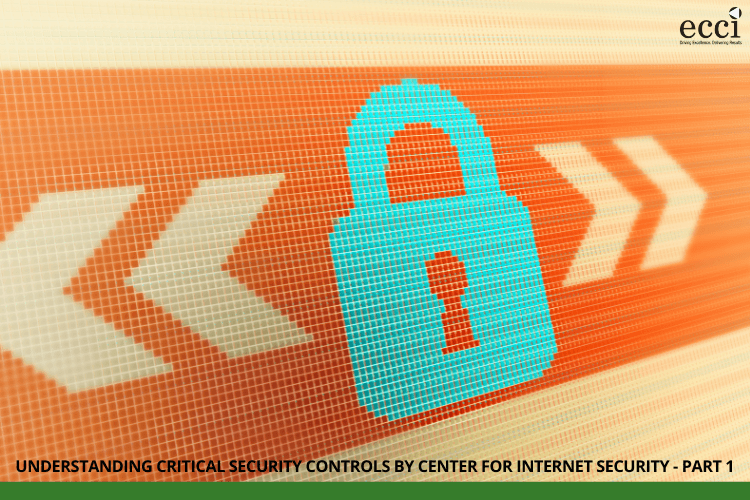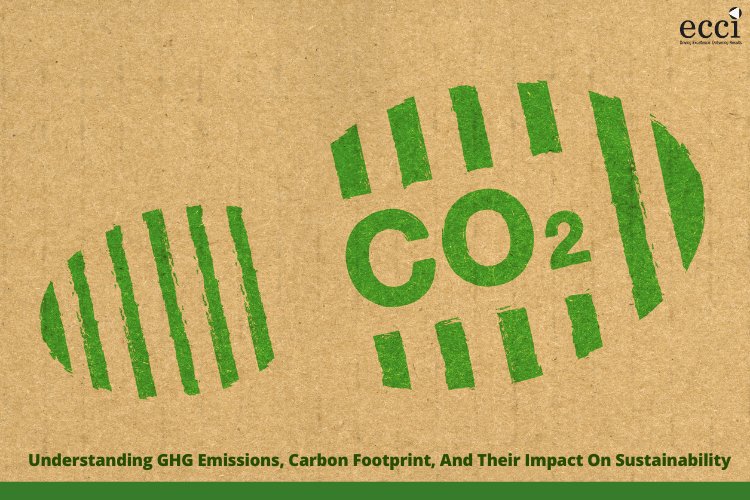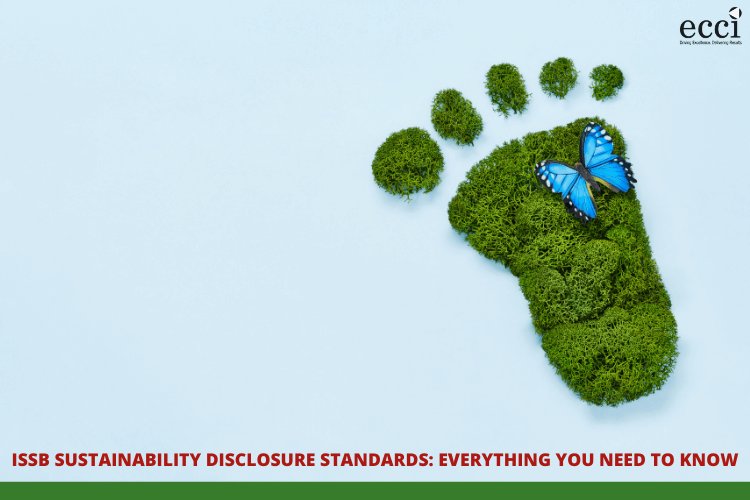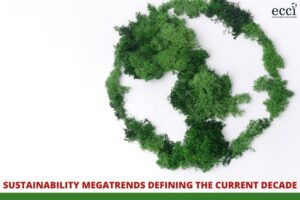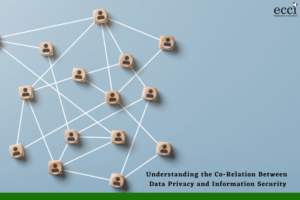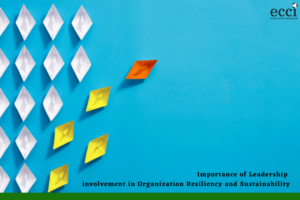In a world where change is the only constant, the need to embrace sustainability has never been more pressing. Sustainability has transcended from being a mere buzzword to a strategic imperative for organizations seeking long-term success and resilience.
More and more corporate leaders in the Philippines and around the world are embracing sustainability to ensure that their organizations don’t just survive in the long run – they thrive.
As we stand at the crossroads of environmental challenges, economic uncertainties, and social transformations, it is important for businesses to rethink their strategies and redefine what it means to succeed in the modern landscape.
In this article, we are going to take a look at what corporate sustainability is, the key elements of a sustainable business, and explore why corporate sustainability is not just an obligation but a visionary pathway to future-proofing organizations and unlocking unprecedented opportunities.
Corporate sustainability – An overview
Corporate sustainability has become a prominent topic of conversation across domains, including business, academia, and the media. It is frequently mentioned alongside other concepts like sustainable development and corporate social responsibility. However, the question remains: What exactly is corporate sustainability?
Corporate sustainability can be defined as the integration of environmental, social, and governance (ESG) considerations into an organization’s strategies, operations, and decision-making processes. It represents a commitment to achieving long-term success by balancing financial profitability with responsibility towards the environment and society.
Today the impact of ESG factors (non-financial aspects) on financial performance cannot be overlooked. Companies with robust ESG practices often outperform their peers in terms of investor confidence, employee retention, and product performance. By aligning with ESG principles, organizations not only attract capital but also gain a competitive advantage in a market that values responsible and forward-thinking enterprises.
A key framework that encompasses the principles of corporate sustainability is the Triple Bottom Line (TBL). The TBL concept developed by John Elkington takes into account three interconnected dimensions: people, planet, and profit. It recognizes that a sustainable business should not only focus on its financial performance but also its social and environmental impacts. Adopting this framework can help organizations increase external investments, retain employees, improve sales from ESG-conscious customers, and gain long-term operational efficiencies.
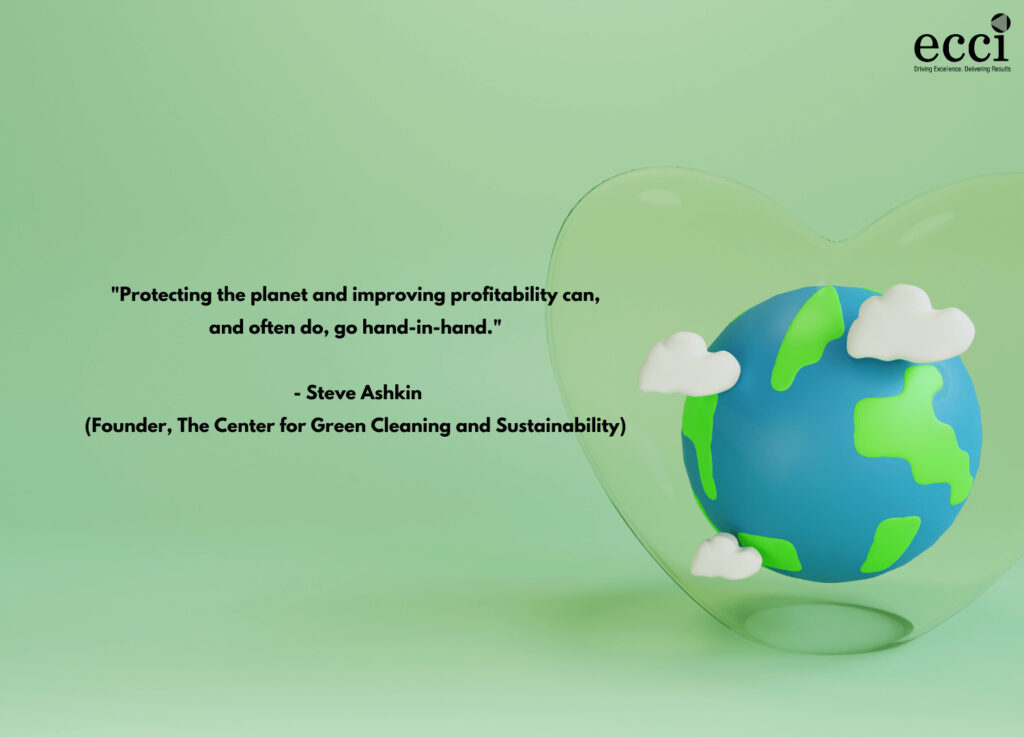
Why is sustainability crucial among businesses?
Sustainability has become increasingly important for companies to remain relevant and competitive; there are proven market benefits such as improved brand image, better resource management, reduced costs, etc.
There are several compelling reasons why sustainability has gained traction among companies worldwide.
A. Triple planetary crisis
Firstly, the triple planetary crisis, consisting of climate change, loss of biodiversity, and resource depletion, has heightened awareness about the urgent need for sustainable practices.
- Climate change threatens ecosystems, livelihoods, and economies. Rising temperatures, extreme weather events, and sea-level rise are already impacting communities globally.
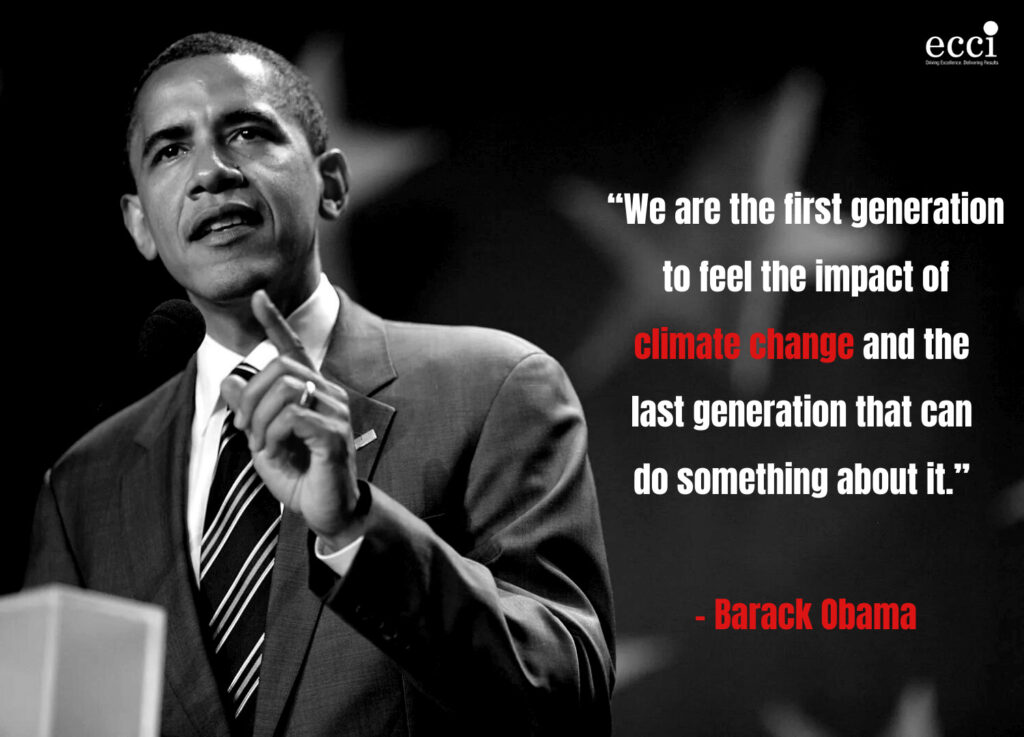
- Biodiversity loss jeopardizes the delicate balance of our ecosystems, leading to the extinction of species and the disruption of vital ecological services.
- Resource depletion, driven by growing populations and unsustainable consumption patterns, strains our finite resources, endangering future generations.
Forward-thinking organizations understand that addressing these challenges is not only a moral imperative but also essential for long-term business resilience. Addressing these challenges requires adopting circularity in the product lifecycle, promoting regenerative approaches in the business model, and mainstreaming resource efficiency practices.
B. Investor expectations
Investor expectations have evolved significantly in recent years. Studies have increasingly shown that companies with promising ESG metrics typically generate higher financial returns. As a result, more investors have now started focusing on ESG metrics while making investment decisions.
According to Gartner research, an astounding 85% of investors acknowledged the significance of ESG considerations in their investment strategies during the year 2020. Similarly, an overwhelming 91% of banks actively monitor the ESG performance of their investments. These figures highlight a growing recognition of the critical role that sustainability initiatives and the performance of companies play in investment decision-making.
Thus, integrating sustainability into a company’s core strategies can help increase its attractiveness to investors and access to capital.
C. Consumer mindset
As environmental degradation and climate change become more prevalent, consumers are becoming more conscious of the environmental and social impacts of their choices. So their mindset has changed significantly and they demand more sustainable products and services. Thus, businesses that embrace sustainable practices can gain a competitive edge by appealing to environmentally conscious consumers and building brand loyalty.
According to a 2019 survey, 73% of consumers worldwide are willing to change their consumption habits to lessen their negative impact on the environment, and sales of sustainable goods have increased by almost 20% since 2014.
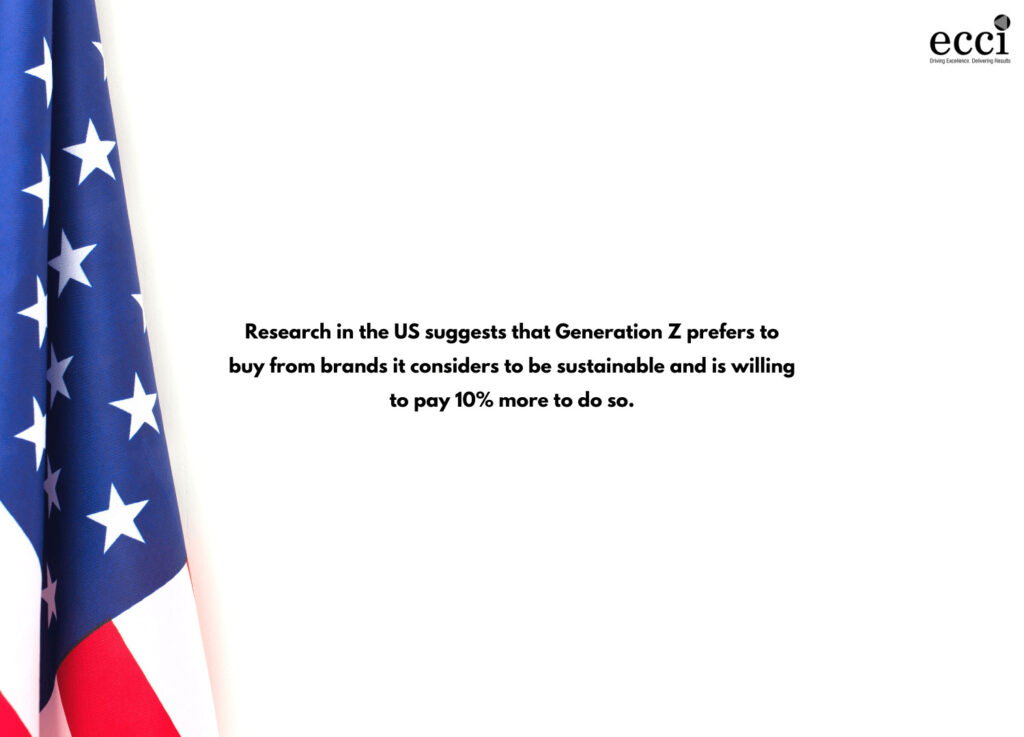
Thus, by attracting customers who are interested in sustainability and boosting sales, your company could gain market share if it commits to sustainable processes and products.
D. Better business
Incorporating sustainability into your organization is not only great for the planet, but also beneficial for business. By proactively addressing ESG issues, organizations can identify new business opportunities, improve resource management, reduce costs, mitigate potential risks, improve their reputation, and build stronger relationships with stakeholders.
According to a 2011 McKinsey study on the business of sustainability, 33% of companies use sustainable practices to improve operational efficiency and reduce costs, a 14% rise from the year before. With this in mind, efficiency improvements can in turn boost operational profits by as much as 60% according to McKinsey.
These statistics clearly demonstrate the tangible benefits of incorporating sustainability into your organization. But not just statistics, real-life examples further illustrate the transformative power of sustainability in driving business success. For instance, the clients of U.S.-based managed service provider Elytus were able to save over $11 million by employing transparent waste management practices. This showcases how sustainable practices can yield substantial financial savings for your business while reducing environmental impact.
The four elements of a sustainable business
To establish a truly sustainable business, four key elements must be in place to foster a culture of responsibility, resilience, and innovation. These four elements are:
1. Executive commitment
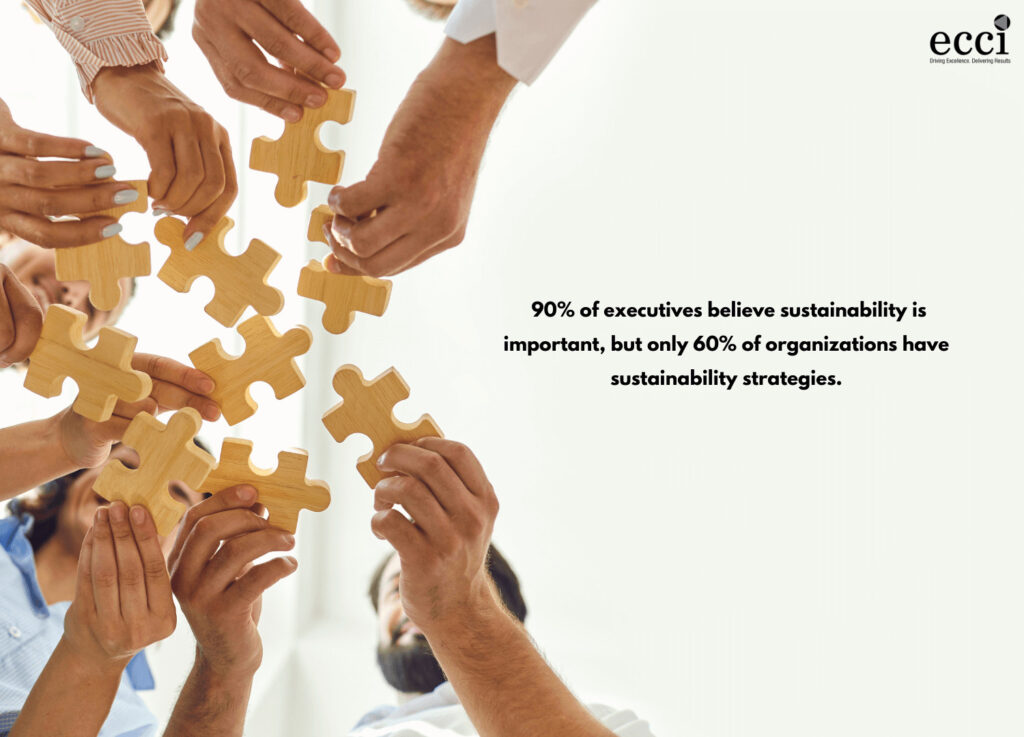
Leaders play a pivotal role in setting the tone from the top and instilling a vision that prioritizes sustainability across all levels of the organization. It requires leaders who understand the significance of sustainability and are willing to champion its integration into strategic decision-making, resource allocation, and goal-setting. By demonstrating a genuine commitment to sustainable practices, executives inspire employees, investors, and other stakeholders to actively participate in the organization’s sustainability journey.
2. Internal governance
Strong internal governance structures are vital for embedding sustainability into the fabric of a business. Governance mechanisms ensure that sustainability considerations are integrated into policies, procedures, and risk management frameworks. By establishing clear lines of accountability and responsibility, organizations can effectively monitor and drive progress toward sustainability objectives. Strong internal governance mechanisms also foster transparency, ethical conduct, and compliance, reinforcing the organization’s commitment to long-term value creation.
3. Sustainability mindset and awareness
Initiatives for sustainability don’t always have to come from the top down; employees can also make significant contributions. So, for that, cultivating a sustainability mindset in employees is crucial. It involves raising awareness about the interdependence of social, environmental, and economic factors and their impact on business operations. By fostering a culture of learning, open dialogue, and continuous improvement, organizations can empower their workforce to embrace sustainable practices, contribute innovative ideas, and drive positive change within and beyond the company.
4. Enabling business model
A sustainable business model is one of the most important elements of a sustainable business. It involves rethinking traditional approaches and embracing innovative strategies that align economic viability with social and environmental responsibility. It leverages new technologies, collaborations, and market opportunities to develop products and services that meet the evolving needs of customers while minimizing resource consumption, waste generation, and emissions. By aligning the business model with sustainability principles, organizations can drive growth, attract investment, and remain competitive in an ever-changing landscape.
Moving forward
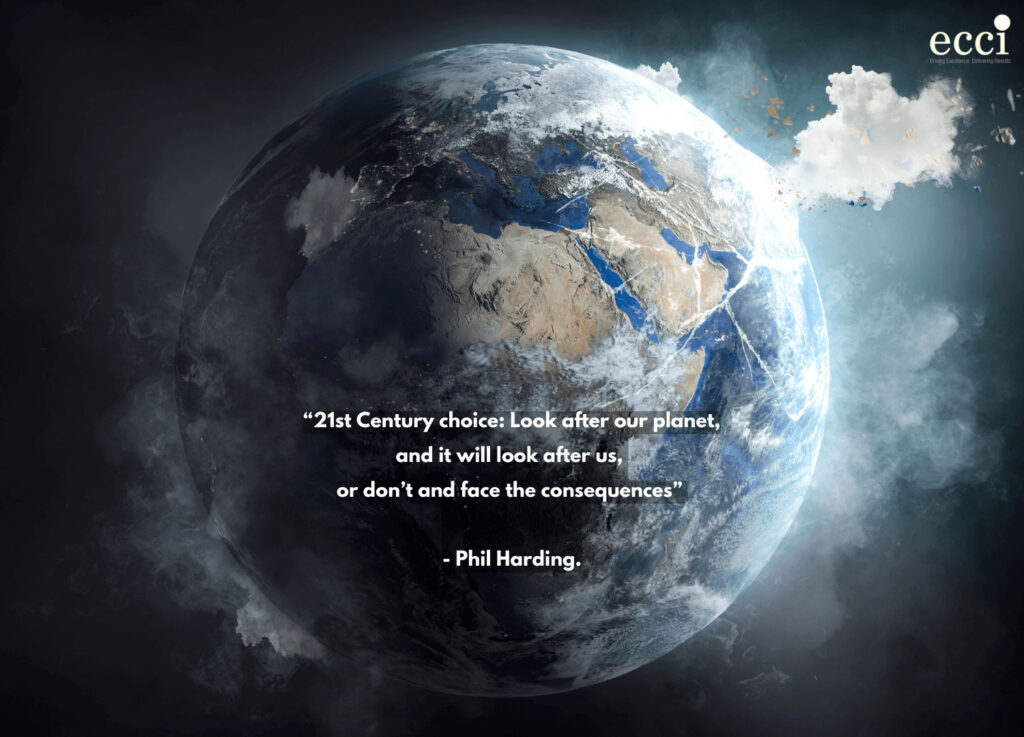
Moving forward, one thing is clear. The path of sustainability is not just an alternative route—it is the only route that ensures a future worth inheriting. It is a transformative journey that transcends individual organizations and spans generations. We need to embrace it with unwavering determination, hope, and belief in our ability to create a better world through sustainable business practices.
Together, we can shape a future that transcends the limits of what we thought possible, a future where businesses are not only the drivers of economic growth but also the guardians of our planet and the catalysts for positive change. Businesses must seize this opportunity to build a legacy that future generations will applaud, as we move forward toward a sustainable world that we can be proud to call our own.
Stay tuned for the second part of this blog series, “Future-proofing through Sustainable Business – Part 2: Understanding Net Zero and the Terminology Around It“, where we’ll delve deeper into the pressing reality of climate change and the urgent need for net zero emissions.
If you need help transforming your company and making it more sustainable, reach out to us at ECCI. Our team of experts can help you choose the right path amidst the maze of sustainability frameworks and align actions with your business objectives to minimize environmental impacts, manifest transparency and adopt socially responsible practices while doing business. Visit our webpage for more information on how we can help you.

